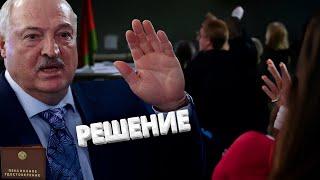
15 idiomatic expressions with Russian verbs ИДТИ and ХОДИТЬ
Комментарии:

I cant wait to use these phrases.
Ответить
This is exactly what I have been looking for !! Thank you so much for this short and efficient content
Ответить
Вы очень талантливый преподаватель языка!
Ответить
It rained yesterday
Ответить
For me it seems, идти does not mean "walks" always. It kinda means, moving by natural means. So a person taking a tram, is ездить / ехать and a tram moving is ходить / идти? At least, it's how I have been trying to rationalize the difference
Ответить
Мне пригодилось
Ответить
Отличное видео, спасибо
A few more idiomatic expressions with идти:
- идти на конфликт: go on a conflict
- идти на контакт: to make contact
- идти на компромисс: to compromise
- идти на встречу: to meet/satisfy (клиентам), to meet halfway (find middle ground), to face (страху)
- идти на уступки: you make concessions
- голова идëт кругом: my head is spinning
And a few more with ходить:
- ходить на (югу, бокс, русский): to do habitually, to practice, to attend classes of something
- ходят слухи: there are rumors
- ходить за ребёнком: to take care of the child
- проходить курс: to take a course

Ето фраза были интересно
Ответить
Maybe in the future you can explain the reflexive possessive pronoun "свой" which all my Soviet-era Russian language manuals considered self-evident and only advised to decline as "мой". But it is not so easy or obvious. I decline it like this:
Masculine/neutral
Nominative - свой/своё
Genitive - своего
Dative - своему
Accusative - N. or G./своё
Instrumental - своим
Prepositional - о своём
Female:
Nominative - своя
Genitive - своей
Dative - своей
Accusative - свою
Instrumental - своей
Prepositional - о своей
Plural:
Nominative - свои
Genitive - своих
Dative - своим
Accusative - N. or G.
Instrumental - своими
Prepositional - о своих
Unfortunately I don't know if they are correct.
🤔

😊
Ответить
Useful!
Ответить
My least fave Russian verb "to go" but Aline is very encouraging
Ответить
Это супер спасибо вам,
❤❤❤

Хорошо Лина 😊
Ответить
Nice .
I learned something new
Thank you Lina

Good day Alina,
Держись за уроки.
Пожалуйста, приготовите специально видео для тех разных слов.
"Подтверждать
Утверждать
Убеждать
И может быть уверен
И так далее...
Подскажите нам когда и как эти слова использовать по-беседу.
They tend to pose a little bit of complexity in trying to use them.
Спасибо ещё раз.

Сегодня пятница! Спасибо вам за новый видео !!
Ответить





![[Walkthrough] 501 Free New Escape Games level 271 - Forest cave escape - Complete Game [Walkthrough] 501 Free New Escape Games level 271 - Forest cave escape - Complete Game](https://smotrel.cc/img/upload/NDZhd0NNOVMtVkc.jpg)



















